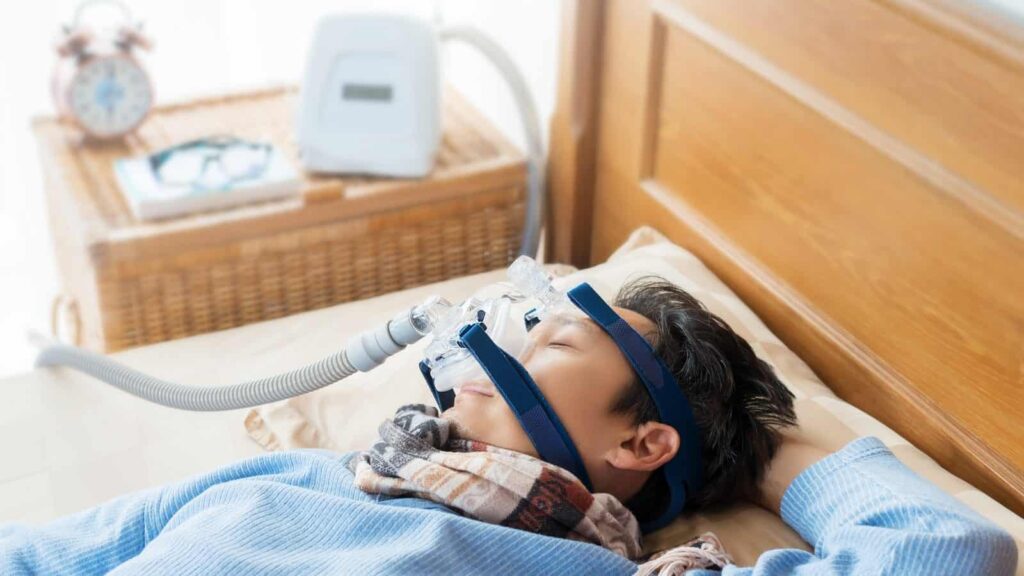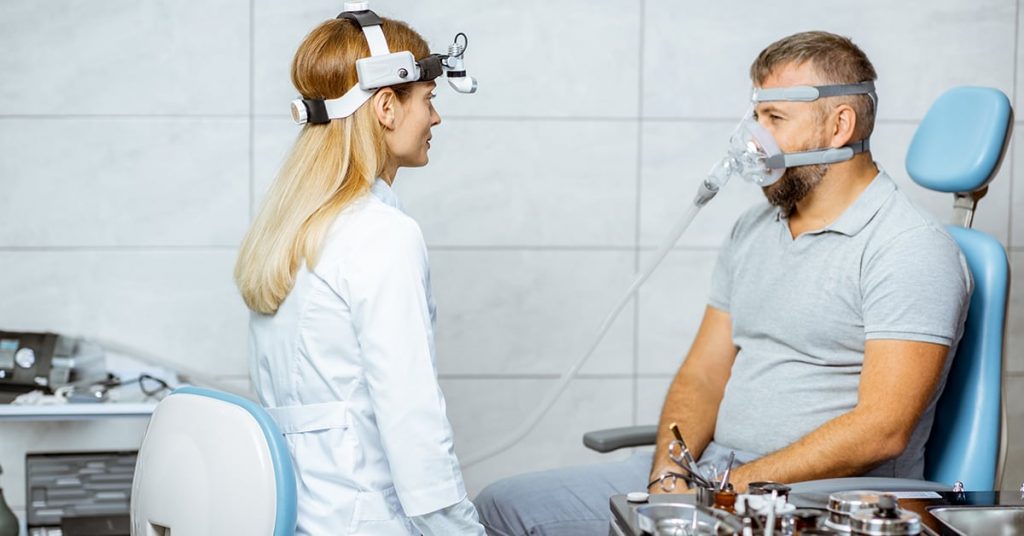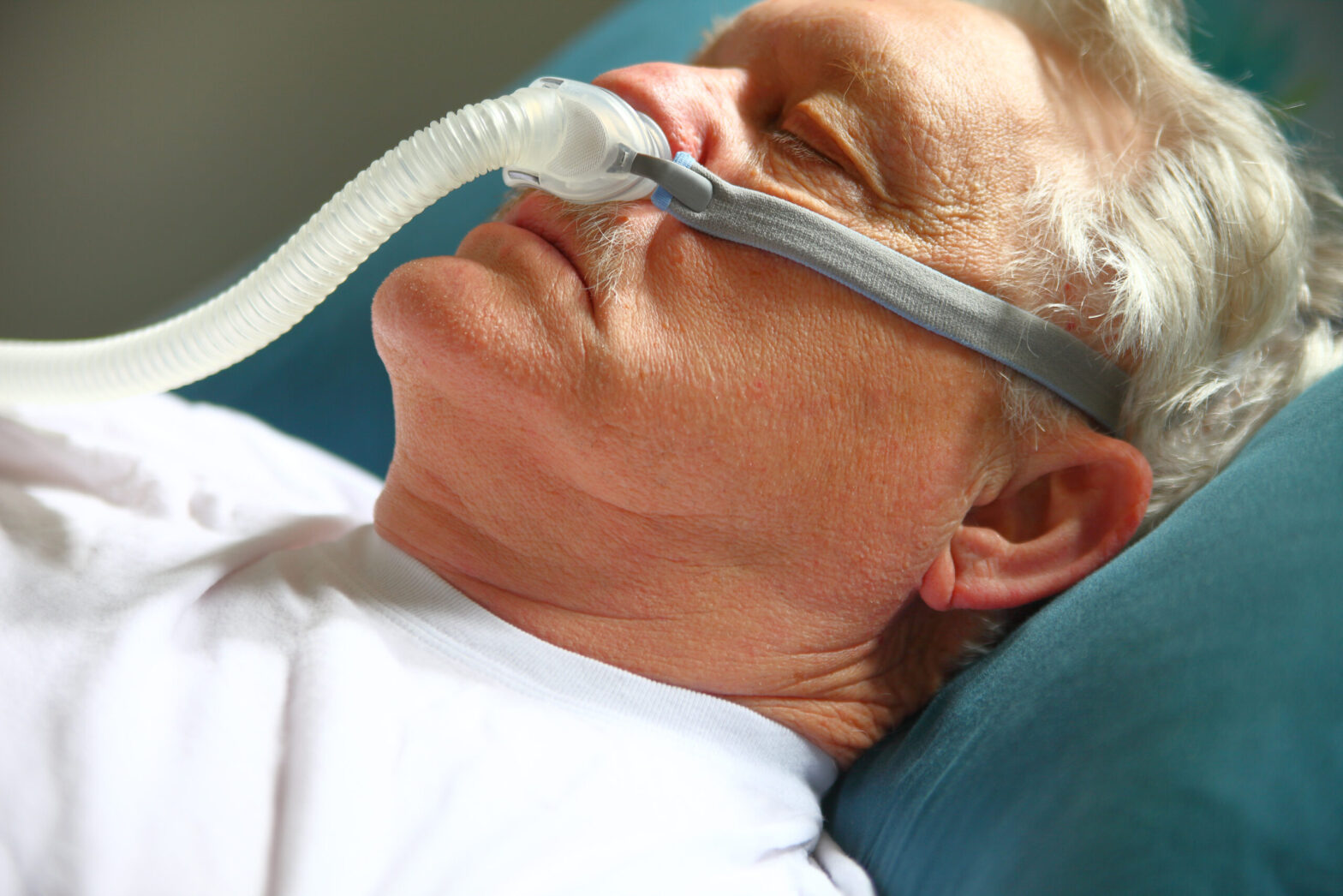A person with obstructed sleep apnea has one or more episodes of shallow breathing or a temporary halt of breathing while they are asleep. When breathing starts up again, the person could gasp for air. Your sleep may be impacted by this persistent issue, but there are luckily strategies to control this pattern. So that you may properly manage your condition, abide by these dos and don’ts.
1. Ensure your sleeping space is comfortable.
Ensure that you receive enough sleep every night or sleep using cpap machine. Keep a regular sleeping schedule and adhere to it. According to some specialists, those who lack sleep may be more prone than others to snoring and sleep apnea. Get extra sleep if you find that these episodes seem to happen when you are too exhausted.
Related: Effects of a Deep Sleep on your Sleep Hygiene
Make your bedroom as cozy and sleep-friendly as you can. Make sure the room where you sleep isn’t too warm or humid. At night, you may wish to lower the heat or crack a window for some fresh air. You may be able to breathe easier and keep your airways open if you use an air purifier.
2. Avoid sedatives and alcohol Before going to bed
Your sleep apnea symptoms might become worse if you take sleeping tablets or consume anything that has a sedative effect. Limit your use of alcoholic drinks throughout the day and avoid them just before bed. A few hours before going to bed, you may also want to avoid consuming chamomile tea since some people find it to be sleepy. Use a non-drowsy formulation if you’re taking antihistamines to treat an allergy or cold.
3. Do Lose Those Additional Pounds
A smart weight-loss program might aid in controlling or preventing your sleep apnea symptoms if you are overweight. Weight reduction is essential to opening up your airways since extra throat tissue in overweight people may obstruct nocturnal breathing. Request a recommendation from your doctor for a realistic weight-loss plan.
4. Avoid Developing a Nicotine Addiction
You undoubtedly already know that smoking is bad for your health. The use of nicotine may make your sleep apnea symptoms worse if you are susceptible to it. Smoking irritates the throat and airways. Additionally, your sleep could be disturbed by that “cigarette cough.” When you stop smoking, keep track of whether your sleep apnea symptoms appear to get better.

5. Do Think About Trying Yoga
While little exercise may improve sleep, yoga may actually strengthen the muscles that support the airways. You may be able to mitigate the consequences of sleep apnea if you include both activities into a healthy workout regimen. Before starting any kind of workout regimen, don’t forget to seek your doctor’s okay.
6. Don’t Sleep Flat on Your Back
To avoid obstructing your airways when resting flat while you sleep, it is preferable to utilize an additional pillow. Consider utilizing a specialized anti-snoring cushion if you also snore. Another piece of advice is to avoid sleeping on your back since for certain people, it might restrict the airways. Instead, try sleeping on your side to see if your problems go better.
7. Always heed medical advice.
A continuous positive airflow pressure machine, or CPAP machine, may be recommended by your doctor if you have severe sleep apnea symptoms. As you sleep, the mask is put over your mouth and nose to assist keep your airways open and deliver constant airflow. Your doctor may provide advice on how to adjust to using the machine every night.
Your doctor could also advise using saline nasal sprays or a saline wash if you have nasal allergies. Your nasal passages may become clearer as a result, improving your ability to breathe. If the air in your house is very dry, using a humidifier could also improve your ability to breathe.
People often have sleep apnea, which is a very common condition. The issue typically goes undiscovered since it happens when you’re sleeping.
During a sleep apnea episode, the shortage of oxygen jolts you awake, usually so quickly that you don’t remember it. You are spending more time in light sleep and less time in the deep, rejuvenating sleep that you need to be active, alert, and productive the following day because your regular sleep cycle has been disrupted. A range of health issues, including mortality in severe situations, may be brought on by sleep apnea. It’s essential that you pay attention to it as a consequence. Make a dental appointment right immediately if you or your bed mate suspect that you or your spouse has sleep apnea.
What changes in way of life may help with the treatment of sleep apnea?
Simple lifestyle modifications may be sufficient to cure mild cases of sleep apnea. If that’s the best place to start, your doctor will let you know. The following adjustments may enhance your sleep and lessen bouts of sleep apnea, even if you are receiving medical therapy.
It’s crucial to reduce weight because:
Losing weight might have a big influence if you’re overweight. Although it is seldom a complete cure, it may help you decrease the amount of breathing episodes you suffer, control your blood pressure, and sleep during the day. Even a tiny amount of weight reduction may open up your throat and reduce the symptoms of sleep apnea.
A nice choice for sleeping is on your side:
The worst posture for sleep apnea is lying on your back because it forces your tongue, mouth, and other soft tissues back toward your throat, obstructing your airway. Since breathing is made more difficult by lying face down or turning your head to the side, sleeping on your stomach isn’t much better. On the other hand, lying on your side keeps your airway open. Using side pillows or body pillows may be helpful if you have trouble falling asleep on your side or wake up on your back.

It is best to abstain from smoking:
Smoking causes more swelling and fluid retention in the neck and upper airway, which exacerbates sleep apnea.
Avoiding certain things includes:
Avoid alcoholic beverages, sedatives, and other medications that reduce anxiety, particularly before night. This has a very straightforward explanation. These chemicals cause the neck muscles to relax, which makes breathing difficult. This includes opiates (such as morphine, codeine, Vicodin, and Percocet) as well as benzodiazepines (like Xanax, Valium, Klonopin, and Ativan), antihistamines (such Benadryl, Claritin), and sleeping drugs.
You must understand that occasionally doing all of these steps won’t be sufficient to solve the sleep apnea-related issues. When that happens, don’t wait to get in touch with a dentist.
Understand the Significant Differences Between Sleep Apnea And Snoring
Not everyone who snores has sleep apnea, and not everyone who snores has the condition. How can you know whether you have sleep apnea or just regular snoring?
The most obvious clue is how you feel throughout the day. Regular snoring doesn’t affect your sleep quality as much as sleep apnea does, so you’re less likely to feel exhausted and tired throughout the day. The way you snore reveals a lot about who you are. If you find yourself gasping, coughing, or producing other strange noises while you sleep, you may have sleep apnea.
Snoring may interfere with your own sleep and that of your bed mate, even if you don’t have sleep apnea. However, there are a number of tips and remedies that might stop you from snoring.
